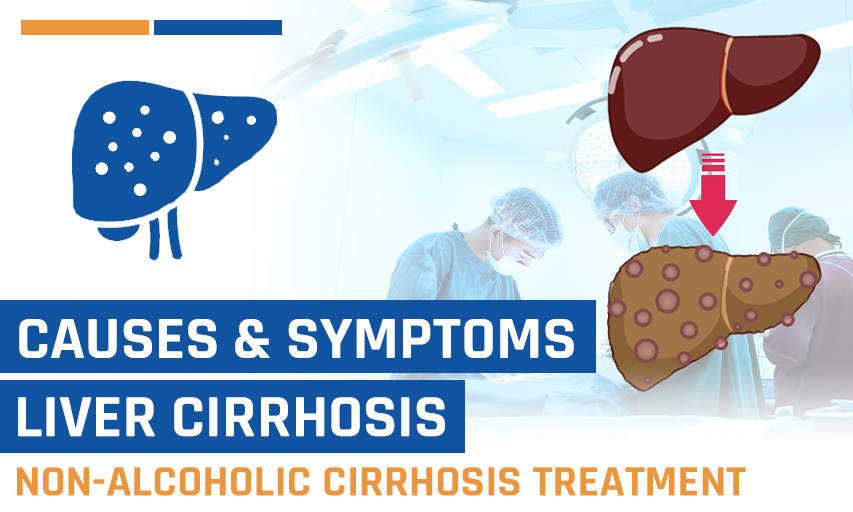How Long Do People Live After a Liver Transplant Procedure?
Liver transplantation is a life-saving option for patients with end-stage liver disease or liver failure. Over the last few decades, this transplantation has progressed in its success rates, giving second chances to life for many. But the most frequent question asked is how long do people live after liver transplant? The answer to the question greatly depends on several factors, including post-operative care, lifestyle changes, and the patient's underlying condition.
Liver transplant patients from African countries prefer to travel to India for liver transplants. The advanced medical facilities, experienced surgeons, and reasonable treatment options make India the preferred destination for such patients. Let’s learn how long do people live after liver transplant procedure with this blog.
Why are the Reasons for Liver Transplant?
Before knowing how long do people live after liver transplant, you must understand why a liver transplant might be necessary. If your liver is not properly functioning, it is essential to consider a liver transplant. There are many reasons for a liver transplant, including:
■ Long-Term Liver Diseases: Cirrhosis, hepatitis B and C, and alcoholic liver disease – all these external facts can lead to liver failure.
■ Acute Liver Failure: This refers to a sudden and very acute liver injury due to infections, overdoses of specific medicines, such as acetaminophen, or other toxins in the body.
■ Liver Cancer: In some cases, patients may be eligible for a transplant if their hepatocellular carcinoma (HCC) has not spread beyond the liver.
■ Genetic Conditions: Genetic conditions like Wilson's disease or haemochromatosis can severely damage the liver beyond recovery, leading to transplants.
Who Are the Ideal Candidates for a Liver Transplant?
You are looking for the answer to how long do people live after liver transplant. But are you the ideal candidate for a transplant? Not every patient afflicted with liver disease ticks the qualification criteria for a liver transplant. Doctors evaluate several factors to determine eligibility. But here is a general candidacy:
■ Severity of Liver Disease: End-stage liver disease patients are prioritised based on their high model for End-Stage Liver Disease (MELD) scores.
■ Overall Health Status: The patient should be healthy enough to undergo surgery and recovery.
■ No Active Infections or Cancer: Patients suffering from active infections or with a history of cancer spread generally do not qualify.
■ Commitment to Lifestyle Changes: The patient must conform to a healthy lifestyle without consuming alcohol, in addition to a strict regimen of medication.
What are Some Things to Know Before Going for a Liver Transplant in India?
A liver transplant procedure is very complex, and patients need to prepare themselves for the process. Here are some key factors to consider:
■ Identifying a Good Liver Transplant Donor: A dead person or a healthy person can donate a liver to the patient.
■ Pre-transplant Assessments: Pre-transplant assessments for liver transplantation should involve a blood test and other tests, such as imaging and psychological tests.
■ Cost and Travel Considerations: Travel arrangements, stay, and legal documents should be made for international patients.
■ Possible Risks and Complications: Learn what risks are included in the surgery, such as rejection and infection, and make sure you do not fall under the risk factor category.
What Can You Expect After a Liver Transplant Procedure?
Patients needing a liver transplant have learnt much about how the transplant will be performed. From there, patients can develop a long-term recovery plan and look forward to hiring a live donor. Patients should be aware of the following:
- Hospital Stay and Recovery: Hospitalization usually happens on average between 10 and 14 days. Thereafter, outpatient care follows over several months.
- Medication Management: Immunosuppressive agents need to be given for organ transplantation failure.
- Diet and Lifestyle Changes: Proper nutrition, exercise as prescribed, and abstaining from alcoholic and tobacco products are necessary for long-term survival.
- Regular Health Check-ups: Regular follow-up with the transplant team will detect failures early.
What is the Survival Rate After a Liver Transplant and What Influences It?
When it comes to deciding on a liver transplant, one common question asked is, how long do people live after liver transplant?' The answer depends on multiple factors, which we'll discuss soon. For now, we will be discussing the life expectancy after a liver transplant:
■ One-Year Survival Rate:
About 85% of patients who have received transplantation are reported to survive beyond this one year after transplantation. Most of these patients will have resumed their normal daily activities and work and witnessed significant improvements in their quality of life.
■ Five-Year Survival Rate:
About 70% to 75% of people undergoing a liver transplant survive more than five years after being transplanted. Most healthy individuals do not suffer severe complications following regular check-ups and treatment compliance.
■ Ten-Year Survival Rate:
Around 50-60% of transplant recipients survive beyond ten years. While some patients develop health problems secondary to using immunosuppressants over the long term, most can be managed effectively within the health system.
Several factors influence long-term survival after a liver transplant:
■ Underlying Cause of Liver Failure:
The patients who undergo liver transplantation for hepatic reasons may differ in survivorship depending on how well the metabolic disorder or chronic condition, such as hepatitis B or C, is managed post-transplant.
■ Adherence to Medication:
A patient must take immunosuppressants as directed to prevent organ rejection and guarantee the long-term survival of grafts. Failure to take medication doses or stopping medications without notice to the doctor may precipitate an acute or chronic rejection, thereby reducing the lifespan of the transplanted liver.
■ Lifestyle Choices:
Healthy lifestyle choices, such as maintaining a healthy weight, avoiding alcohol intake, and staying physically active, have a significant impact on longevity.
■ Medical Advancements:
The improvement of surgical techniques, in addition to better immunosuppressants, prolongs the survival of the patient undergoing a liver transplant.
■ Early Detection of Complications:
Through constant follow-ups post-transplant, complications such as infections, rejection, or cardiovascular mishaps can be identified and managed at the earliest possible points in time. These complications significantly affect survival rates.
Bottom Line: How Long Do People Live After Liver Transplant Procedure?
Liver transplantation is a highly successful procedure which increases the quality of life for patients with liver failure or end-stage liver diseases. But exactly how long do people live after liver transplant? The answer depends on many factors, including the type of medical care received, adherence to prescribed treatments, and lifestyle choices. Many patients with liver transplants go on to lead fulfilling lives for ten years and more, provided they make positive lifestyle changes and follow proper post-operation guidelines.




















Be First To Comment
Leave a Comment